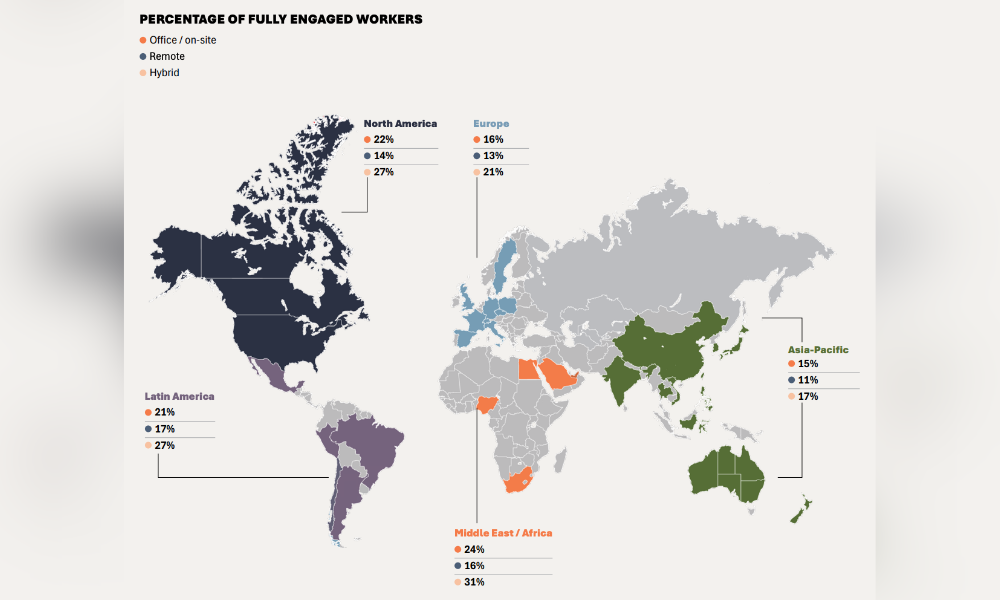
Does work arrangement matter influence employee engagement?

Employee engagement in Australia has dropped to 16%, with engagement rates the lowest for remote employees, according to a new report.
ADP's People at Work 2025 report defined engagement as the "emotional state of mind that causes people to do their best work and do it sustainably."
In Australia, the workforce engagement rate has declined to 16%, down from last year's 18%.
It is slightly higher than the 13% engagement rate in the Asia-Pacific region, but lower than the 19% engagement rate globally.
Among employees, the report found that office or on-site workers reported a higher engagement rate of 17% compared to their hybrid and remote counterparts.
The engagement rate for hybrid workers is only at 15%, while remote workers reported the lowest engagement rate of seven per cent.
This is in contrast with global findings, where hybrid work arrangements have been shown to promote greater engagement in the workforce, according to the report.

ADP attributed their findings to Australian hybrid and remote workers experiencing "more profound disconnect from their teams and company culture."
This comes amid ongoing economic pressures and an uncertain job market, as well as evolving expectations of work-life balance and challenges that come with remote collaboration.
Emmy Andriotis, Human Resources Director, ADP Australia, said Australia's workforce engagement is ultimately about connections.
"Our research demonstrates employee engagement ultimately comes down to how connected employees feel to their teams and employers, no matter where they work," Andriotis said in a statement.
To improve engagement, the HR director said organisations should recognise that one-size-fits-all approaches no longer work, especially for hybrid employees.
"Investing in personalised, flexible solutions and cultivating a sense of belonging is a great starting point to bridge the gap, ensuring employees feel connected, valued, and motivated — whether they're working from home or the office," she said.
Aside from connection, the report stressed that autonomy also has an impact on employee engagement.
"When we asked people about employer policies on hybrid and remote work, respondents who had complete flexibility to choose where they work each day — whether on site or somewhere else — were much more likely to be fully engaged than workers who were less empowered," the report read.
This pattern is consistent regardless of where employees spent their time working, according to the report.
"Office and other on-site workers who had the flexibility to choose their workplace were just as likely to be fully engaged as hybrid workers with the same level of freedom. It's having the choice that matters."